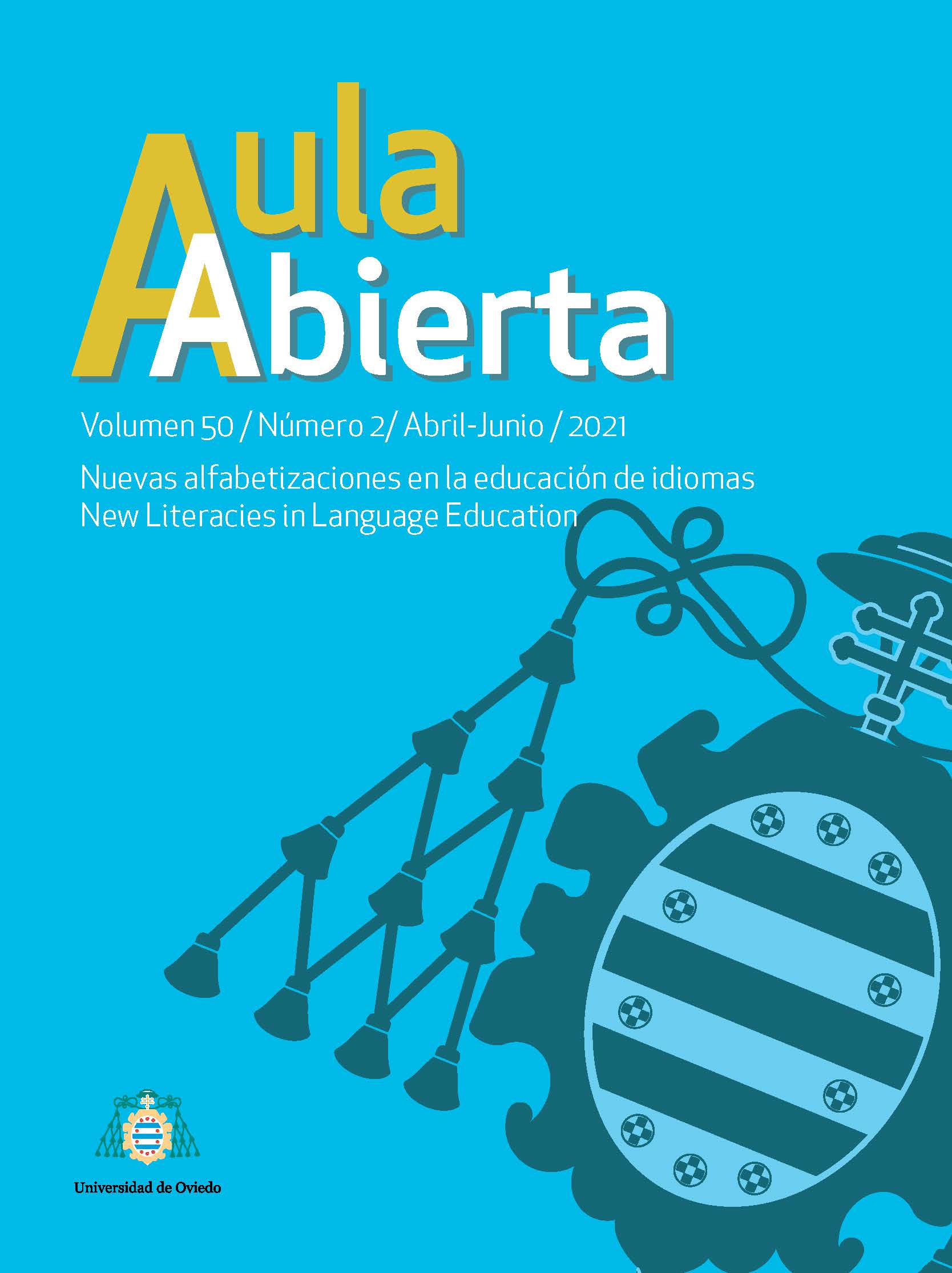Abstract
The so-called ‘twenty-first century skills’ (Dudeney, Hockly and Pegrum, 2014) have been identified as essential literacies for the young generation, who must use creativity and innovation, collaboration and teamwork, critical thinking, problem-solving, autonomy, flexibility and lifelong learning to function effectively. Bilingual pre-service teachers are entitled to develop these skills for both their own education and that of their future students (Savage and Barnett, 2015). This research will analyse the opinions of 45 bilingual pre-service teachers on the development of their twenty-first century skills through either online or face-to-face teaching. Quantitative and qualitative data will be scrutinized under a mixed-methods research, which will throw light on how participants think such skills are better developed. Findings will show that teacher students think that some of these skills are better developed under a face-to-face modality of learning (e.g. teamwork and collaboration), whereas others (e.g. autonomy and innovation) evolve better under an online framework of learning. Twenty-first century literacies push the educational boundaries of bilingual teachers as they are entitled to have a repertoire of communication skills that make us, teacher educators, pursue academic rigour regarding our own teaching and updated training.
References
Aliyyah, R. R., Rachmadtullah, R., Samsudin, A., Syaodih, E., Nurtanto, M., & Tambunan, A. R. S. (2020). The perceptions of primary school teachers of online learning during the COVID-19 pandemic period: A case study in Indonesia. Journal of Ethnic and Cultural Studies, 7(2), 90–109.
Alonso-Díaz, L., Delicado, G., & Ramos, F. (2019). A Comparative Study of Bilingual Teacher Preparation Programs in California and Spain. In B. Johannessen (ed.), Bilingualism and Bilingual Education: Politics, Policies and Practices in a Globalized Society (pp. 81–101). Cham: Springer.
Álvarez, M. D. L. C. & Domenech Rodríguez, M. M. (2020). Cultural competence shifts in multicultural psychology: Online versus face-to-face. Translational Issues in Psychological Science, 6(2), 160.
Campo-Arias, A. & Oviedo, H. C. (2008). Psychometric properties of a scale: internal consistency. Revista de salud pública, 10(5), 831–839.
Castaman, A. S. & Rodrigues, R. A. (2020). Educação a Distância na crise COVID-19: um relato de experiência. Research, Society and Development, 9(6), e180963699–e180963699. Retrieved from https://cutt.ly/0jWiznZ.
Creswell, J. W. & Plano Clark, V. L. (2010). Designing and conducting mixed methods research (2nd edition). London: Sage Publications.
Creswell, J. W., Klassen, A. C., Plano Clark, V. L., & Smith, K. C. (2011). Best practices for mixed methods research in the health sciences. Bethesda (Maryland): National Institutes of Health.
Day, T., Chang, I. C. C., Chung, C. K. L., Doolittle, W. E., Housel, J., & McDaniel, P. N. (2021). The immediate impact of COVID-19 on postsecondary teaching and learning. The Professional Geographer, 73(1), 1–13.
Denzin, N. K. & Lincoln, Y. S. (Eds.). (2017). The SAGE Handbook of Qualitative Research (5th ed.). Thousand Oaks, CA: SAGE.
Dudeney, G., Hockly, N., & Pegrum, M. (2014). Digital literacies. New York: Routledge.
Hantrais, L., Allin, P., Kritikos, M., Sogomonjan, M., Anand, P. B., Livingstone, S., Williams, M., & Innes, M. (2020). Covid-19 and the digital revolution. Contemporary Social Science, 1–15.
Hasan, N. & Bao, Y. (2020). Impact of “e-Learning crack-up” perception on psychological distress among college students during COVID-19 pandemic: A mediating role of “fear of academic year loss”. Children and Youth Services Review, 118, 105355.
Hung H-L., Altschuld, J. W., & Lee, Y. (2008). Methodological and conceptual issues confronting a cross-country Delphi study of educational program evaluation. Evaluation and Program Planning, 31, 191–198.
Hsu, C. C. & Sandford, B. A. (2007). The Delphi technique: making sense of consensus. Practical assessment, research & evaluation, 12(10), 1–8.
Kauppi, S., Muukkonen, H., Suorsa, T., & Takala, M. (2020). I still miss human contact, but this is more flexible—Paradoxes in virtual learning interaction and multidisciplinary collaboration. British Journal of Educational Technology.
Kumari, V., Hameed, D., Mazumder, D., & Sathyan, A. (2020). The Role of Education Leadership in Managing Teaching Competencies of Selected Secondary Teachers in the United Arab Emirates (UAE) (An Exploratory Study). International Journal of Management (IJM), 11(9).
Landeta, J. (2006). Current validity of the Delphi method in social sciences. Technological forecasting and social change, 73(5), 467–482.
Lee, K. (2020). Openness and innovation in online higher education: A historical review of the two discourses. Open Learning: The Journal of Open, Distance and e-Learning, 1–21.
LOMCE. (Ley Orgánica 8/2013, de 9 de diciembre, para la mejora de calidad educativa). (2013). Jefatura del Estado. BOE, 295. Retrieved from https://cutt.ly/bjWuf7G.
Martin, A. (2006). Digital Literacy Needed in an ‘e-permeated’ World: Progress Report of DigEuLit Project. Retrieved from https://cutt.ly/Pjm06s3.
Nayernia, A. (2020). Development and validation of an e-teachers’ autonomy-support scale: A SEM approach. Development, 14(2), 117–134.
OECD. (Organisation for Economic Cooperation and Development). (2013). Assessment of higher education learning outcomes. AHELO Feasibility Study Report Vol. 3–Further Insights. Retrieved from https://cutt.ly/LjWnJIn.
Oviedo H. C. & Campo-Arias, A. (2005). Aproximación al uso del coeficiente alfa de Cronbach. Revista colombiana de psiquiatría, 34(4), 572–580.
P21. (Partnership for 21st Century Skills). (2007). Framework definitions. Retrieved from https://cutt.ly/VjmBqzI.
Savage, M. & Barnett, A. (2015). Digital Literacy for Primary Teachers. Critical Teaching. Northwich: Critical Publishing.
Sun, C., Shute, V. J., Stewart, A., Yonehiro, J., Duran, N., & D’Mello, S. (2020). Towards a generalized competency model of collaborative problem solving. Computers & Education, 143, 103672.
Takala, M., Nordmark, M., & Allard, K. (2019). University curriculum in special teacher education in Finland and Sweden. Nordic Journal of Comparative and International Education (NJCIE), 3(2), 20–36. DOI: https://doi. org/10.7577/njcie.2659.
The Jamovi Project (2020). Jamovi. (Version 1.2) [Computer Software]. Retrieved from https://www.jamovi.org.
Vitalaru, B. (2020). Competences in US and Spain: Skills and Strategies in LAs’ Spanish Academic Papers. In M. E. Gómez-Parra and C. A. Huertas-Abril (Eds.), Handbook of Bilingual and Intercultural Education (pp. 302–337). Hershey: IGI Global.
Wächter, B. & Maiworn, F. (Eds.). (2014). English-Taught Programmes in European Higher Education. Bonn: Lemmens.

This work is licensed under a Creative Commons Attribution-NonCommercial-NoDerivatives 4.0 International License.
Copyright (c) 2021 Aula Abierta

